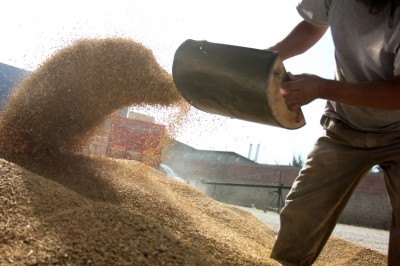Feed prices could soar if brewer grains not exempted from FSMA, says US dairy lobby

The animal feed draft regulations were issued under the Food Safety Modernization Act (FSMA), which gave the Food and Drug Administration (FDA) broad new authority to regulate food.
The National Milk Producers Federation (NMPF), a trade group representing 32,000 dairy producers in the US, said while it supports the FSMA, it believes the draft animal feed regulation goes too far, particularly because it would make it harder to use a brewing by-product as animal feed.
“The regulation of spent brewers’ grains under the animal feed rule will result in unnecessary increased costs to dairy producers, since brewers’ will pass on increased costs of spent brewers’ grains without any appreciable change in feed safety,” said the trade group in a letter to the FDA this week.
Brewer grain exemption sought
The FSMA animal rule, as it stands, would mean brewers would have to meet the same standards as livestock manufacturers, imposing new sanitary handling procedures, record keeping and other food safety processes on the industry, said the dairy association.
The milk producer lobby, along with the US Beer Institute and the American Malting Barley Association, is asking the FDA to use its authority under the Food Safety Modernization Act (FSMA) to exempt the brewing by-product from the new legislation.
“For spent brewers’ grains, the rule contains the flawed and erroneous assumption that the mere act of separating insoluble particulates during brewing amounts to a separate manufacturing process.
This transforms an exempt activity into a non-exempt activity, triggering regulation if the by-products or residue of beverage alcohol manufacture are used as animal food,” added the trade group.
Milk group calls for new comment round
The lobby group also wants a rewrite of the draft livestock feed regulation, saying the FDA went beyond the intent of the US Congress by seeking to impose requirements that will not make animal feed safer.
The NMPF said the proposed regulation incorrectly establishes manufacturing standards that equate animal feed and human food.
It wants the US agency to establish a new round of comments from industry and the public.
“Given the very significant nature of these regulations, a second opportunity for stakeholder comment is essential to ensure the final rule is practical, achievable and fosters the safe production and distribution of animal feed and pet food.
Further, we believe FDA has the authority to re-propose the regulations and still comply with the court-ordered deadline to publish a final rule by August 30, 2015,” said the NMPF this week.
Current Good Manufacturing Practice (cGMP) rules
FeedNavigator.com recently spoke to Richard Sellers, senior VP of legislative and regulatory affairs at the American Feed Industry Association (AFIA) about the imposition of Current Good Manufacturing Practice (cGMP) rules on the sector, as proposed under the draft animal feed legislation.
“We’ve not seen an impact of this magnitude since FDA was created in 1938,” he said.
While cGMP rules for medicated feed have been on the books since 1976, feed ingredient companies and smaller operations are not familiar with them, said the AFIA regulatory expert.
Phased-in GMP model
Sellers said the AFIA wants the FDA to consider a gradual introduction approach when addressing GMPs and has asked the agency to then look at adding the preventive control rules on a two to four year phase-in basis to allow for greater compliance.
“We believe this would allow firms unfamiliar with GMPs to become acclimatized before fully implementing preventive control programs. Based on our expected economic analysis and later review of our industry’s practices, we may request more compliance time after the rule has been finalized for 18 months,” said the regulatory affairs specialist.
In terms of risk based preventive controls, Sellers said: “Our safe feed/safe food certification program takes this approach, but only several hundred facilities have been certified. So these are very new concepts to the majority of the facilities. However, the large firms making the majority of the tonnage understand them.”
Industry costs underestimated
He added that AFIA members claim the FDA has grossly underestimated the costs of the new rules for the industry and that the trade group may “do a study later this year to justify extending the compliance period.”
Sellers said that he expects the FDA will issue more proposed rules on supplier verification, environmental testing and product testing later. These were removed by the US Office of Management and Budget (OMB) from this set of rules for being too costly.















